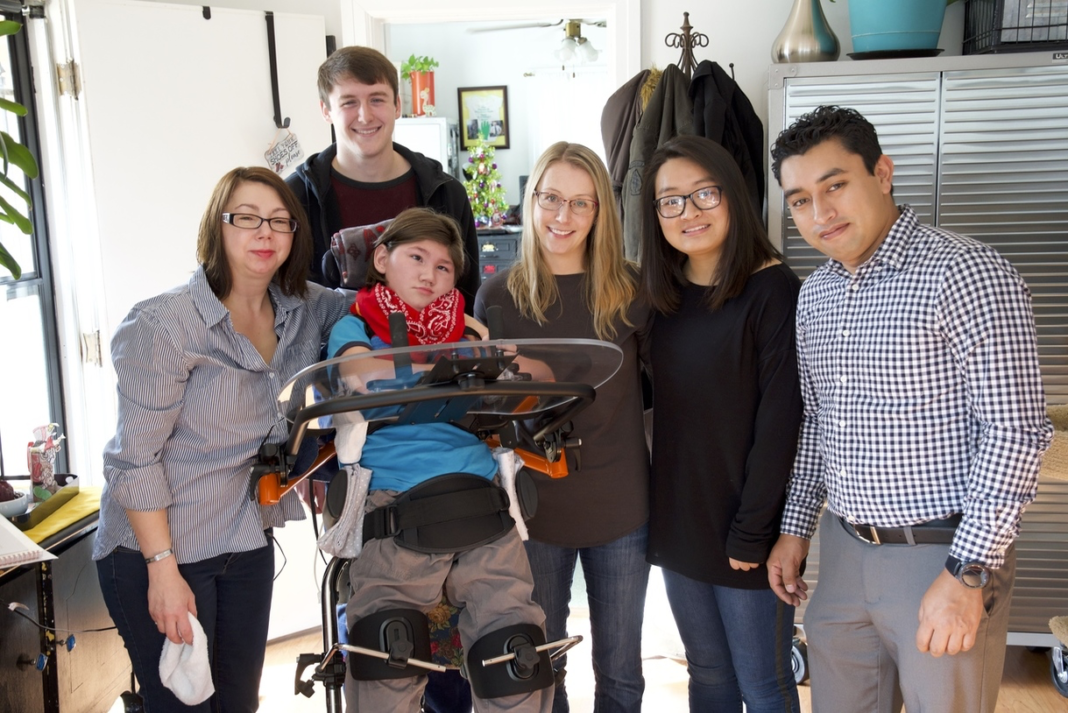
COOKEVILLE –Some students celebrate the end of the semester by showing off their grades and calculating their GPA.
A few mechanical engineering students at Tennessee Tech, however, celebrate the end of the semester by hearing “thank you” and seeing the smiles on faces of people they have helped.
The Early Intervention and Mechanical Engineering (EIME) Project at Tech provides innovative engineered products to children with special needs and their schools and families while offering valuable “real world” design experience to engineering students.
Under the direction of mechanical engineering professor Stephen Canfield, several projects were completed at the end of the fall semester and presented to families of special needs children around the Upper Cumberland.
“We take junior-level engineering students in a design-type class and part of the class is to help a child with special needs,” said Canfield. “There are these children who have a need for a product you can’t buy. My students meet with that family and that child and a therapist or someone from the medical community. They go through a process throughout the semester where they see a need and identify the need. They then go through a detailed design process and fabricate, design, test and deliver that device to the family to help that child.”
Among the projects completed was a bath chair for Vegas Wragg, a 10-year-old boy in Sparta, who is confined to a wheel chair.
“I had a placenta eruption during my pregnancy. He lost oxygen in the womb and suffered from three parts of brain damage from a lack of oxygen,” Vegas’ mom Tera Wragg explained. “He’s just a kid. High maintenance is what we call it.”
The high maintenance came from Tera’s attempt to bathe Vegas. He continues to grow and gain weight, making it harder for Tera to carry him in and out of the bath tub.
“The bath chair we have only goes up so high and I’m trying to lift a 60-pound kid into the tub, so it’s really hard. There aren’t that many options in the special needs equipment area for something like this,” Tera said. “You think of lifting a 60-pound kid 20 times a day. Eliminating one step is a big deal.”
The student team of Laurie Messerschmidt, Lindsay Couch, Mario Aldana and Jack Nawiesniak worked diligently all semester to try to find a solution to Wragg’s dilemma.
“We texted and emailed back and forth,” said Tera. “They were so friendly and nice. We would go over my concerns and their concerns. It was so easy. There was no problem at all.”
Since the bathroom is small and permanent changes can’t be made to it, the team came up with the concept of a mobile bath chair.
“The biggest challenge was how do we make it for the device to support all the weight of the child and get that load off of the mother,” said Nawiesniak. “I think we were able to do that.”
The team created a device where Tera can slide Vegas from his bed onto the bath chair and then push him into the bathroom and bath him while he is in the chair. The students tested the device and it worked out fine.
“It’s amazing,” said Tera. “They included an extra step for us. They made it mobile.”
Seeing their hard work come to fruition was a satisfactory reward for the students.
“This project has been a challenge,” said Nawiesniak. “I feel like we really made a difference in the child’s and the family’s life.”
“If I had a job where I could change people’s lives, I would take it,” said Aldana. “It’s a huge reward to help someone make their life a little easier.”
“This class really helped us communicate and do something good,” added Messerschmidt. “When you help someone and it makes them happy, it makes you happy, too.”
Besides helping special needs families, the EIME project also leverages the significant creative and design potential in Tech’s engineering students and the benefits of collaboration with the Tennessee Department of Special Education, the College of Education and the Tennessee Early Intervention System (TEIS).
“I think this experience is very valuable,” Nawiesniak said. “I know a lot of students who don’t get this type of experience. It’s a good intro into more of what we will be doing in our careers.”









